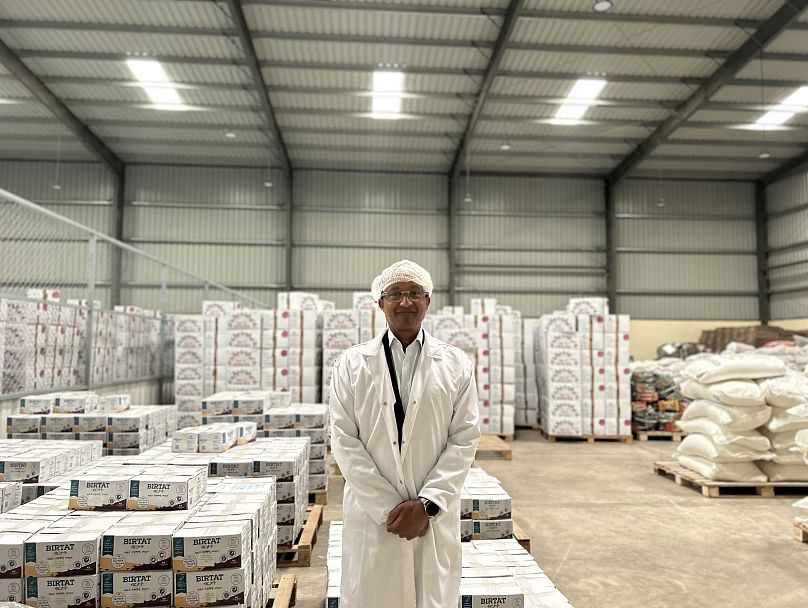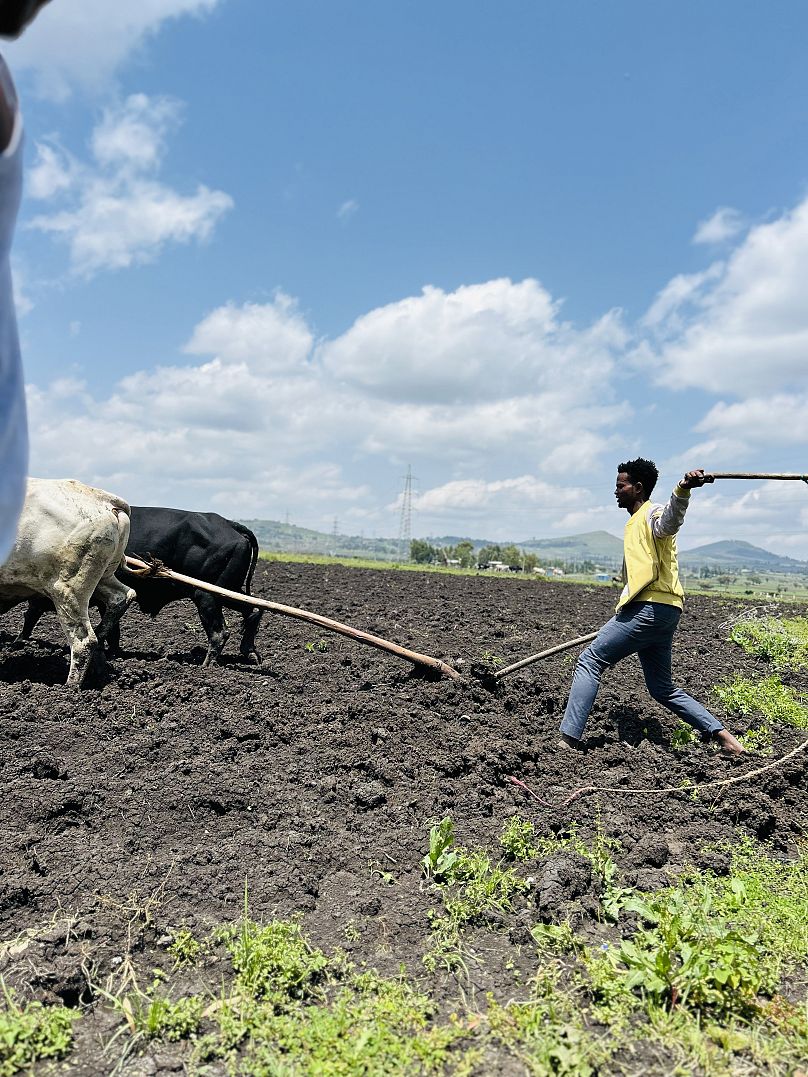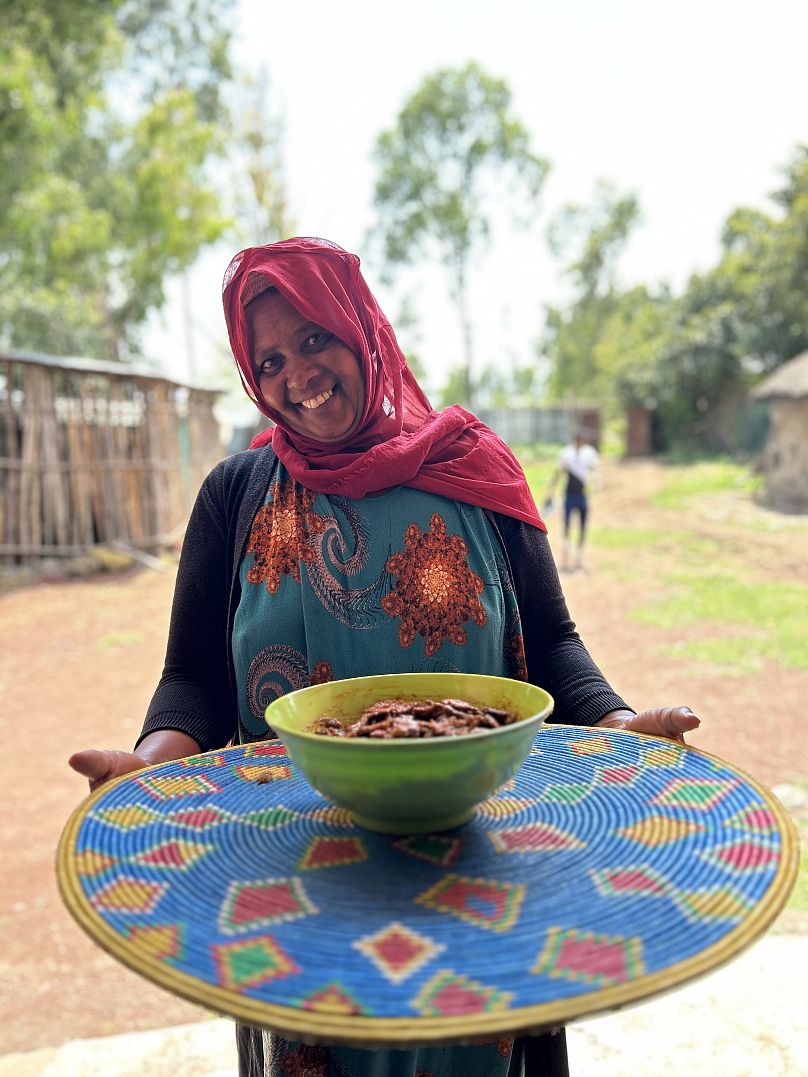Teff is the star ingredient of Ethiopian cuisine, yet this grain is also a victim of biopiracy- the unethical exploitation of indigenous knowledge and biological resources. In this episode, we meet Yonas Alemu, a man who is committed to inverting this trend by modernizing teff production.
“The fact that we are being left behind. And that Ethiopia, its farmers and the community are not benefiting at all from teff is something we should not accept. And personally, I cannot accept”. Yonas Alemu is an Ethiopian entrepreneur with a commitment: helping Ethiopian farmers benefit from the commercialisation of teff, the world’s smallest grain, native to the Horn of Africa.
In this episode, we travelled to Ethiopia to meet Alemu and learn more about how his teff-processing business, Lovegrass, is fighting against biopiracy – the practice of exploiting indigenous knowledge without proper authorisation.
From Lovegrass’s warehouse to the teff fields, we delved into the challenges that Ethiopians face in producing this native crop and explored possible solutions. And, as always, local gastronomy played a key role in our journey. This time we tasted chechebsa, an Ethiopian breakfast dish crafted with teff.
Yonas Alemu and his battle against biopiracy
“When I was a child, I grew up in a farming household in Ethiopia, farming teff”, shares Alemu, during our meeting in his factory Lovegrass, not far from Addis Ababa, the capital of Ethiopia.
In the 80s, Alemu left his family to pursue his studies in Europe and eventually started working in finance. In 2015, a sudden realisation changed the course of his life: “Teff was becoming more popular in UK supermarkets, but not a single kilogram of it was coming from Ethiopia. It was actually growing in America, South Africa, Spain, and Australia”.

This phenomenon is also known as biopiracy, an underexplored concept that lawyer Patrik Agejo specialising in private law and biopiracy describes as: “The exploitation and commercialisation of biological resources without compensation to the original owner of those plants”.
This dynamic usually favours Western countries at the expense of countries that are marked by political and economic instability, like Ethiopia.
In 2003, after conducting research with the Ethiopian state, a Dutch company filed a controversial patent for teff flour. In 2020, following a lawsuit by the Ethiopian government, the company’s licence was invalidated.
Despite this victory, there is no international regulation on biopiracy. This lack of legal background threatens the ability of Ethiopian farmers to commercially exploit their native crops, and this is why Yonas Alemu has committed to bolstering the production of teff.
Our mission is to make sure that teff becomes one of the ingredients that helps Ethiopia in its fight against poverty.
Even though Ethiopia is the main supplier of teff today, the crop remains somewhat underexploited: “There is a potential to get up to 3.2 tonnes (of teff) per hectare. Currently, the productivity at the national level is just 1.8 tonnes per hectare”, explains Taye Tadesse, an expert from the Ethiopian Institute of Agricultural Research.
The reasons for this limited production are structural: Ethiopian farmers rely on oxen and cows for harvesting and rarely have access to machines and varieties of grains that can be cultivated more easily. And Alemu, thanks to his childhood in a farming household, is aware of the harsh conditions in which parents have to work.

“We grow up knowing about kachi kachi, which is the stone we feel when we eat our injera (flatbread made from teff)”, Alemu explains. “What happens is that cows walk on it if it’s on the ground. And when farmers collect teff, the fine sand goes into the packaging”.
This hampers Ethiopian farmers’ ability to sell their products on the market, which is where Lovegrass comes in. The business collaborates with three cluster farms (groups of farmers working together), offering them training and varieties of seeds that can be planted using machines.
“We are doing all these different engagements to make sure farmers can produce more, and have the capacity to brand what they produce”, explains the CEO.
Last year, Lovegrass’ farmers harvested 2 tonnes of teff and this year Alemu expects an even better result.
Chechebsa – Taste the typical Ethiopian breakfast
To better understand how teff is produced, we met Yasinu and Keyria, two farmers harvesting teff the traditional way: with oxen. They cooked chechebsa for us, a traditional Ethiopian dish, usually eaten for breakfast.

Ingredients for 2 people
250 gr of teff
a glass of water
a teaspoon of salts
Preparation
Mix the ingredients into a thick dough
place the dough on a pan and stretch it
Once the pita is cooked, shred it in pieces and place in a bowl
mix it with butter
Add some berbere and yoghurt
Enjoy!
If you’re hungry for more recipes and stories about indigenous African ingredients, listen to the first 10 episodes of our series.
Source : Euro News Culture











